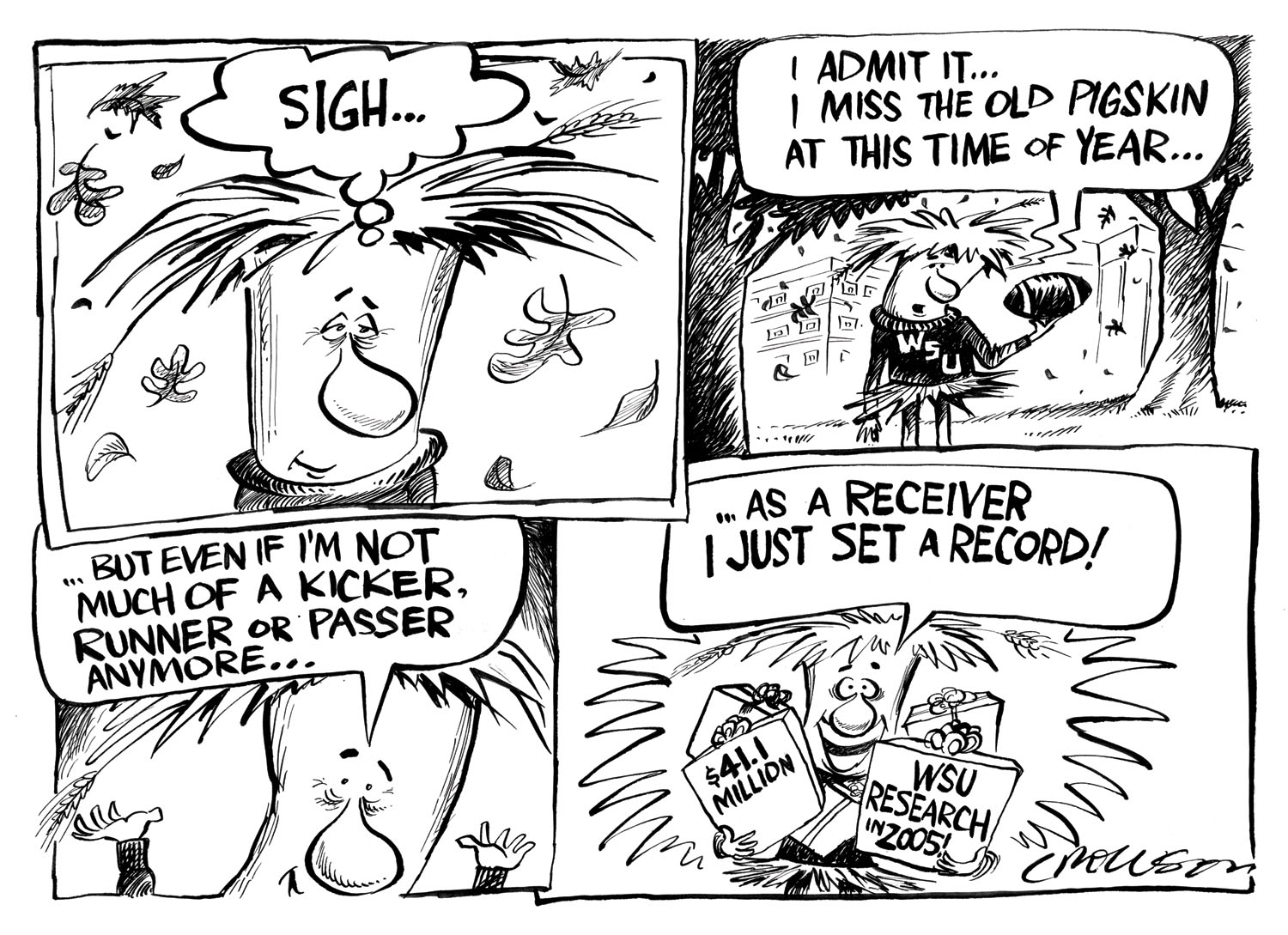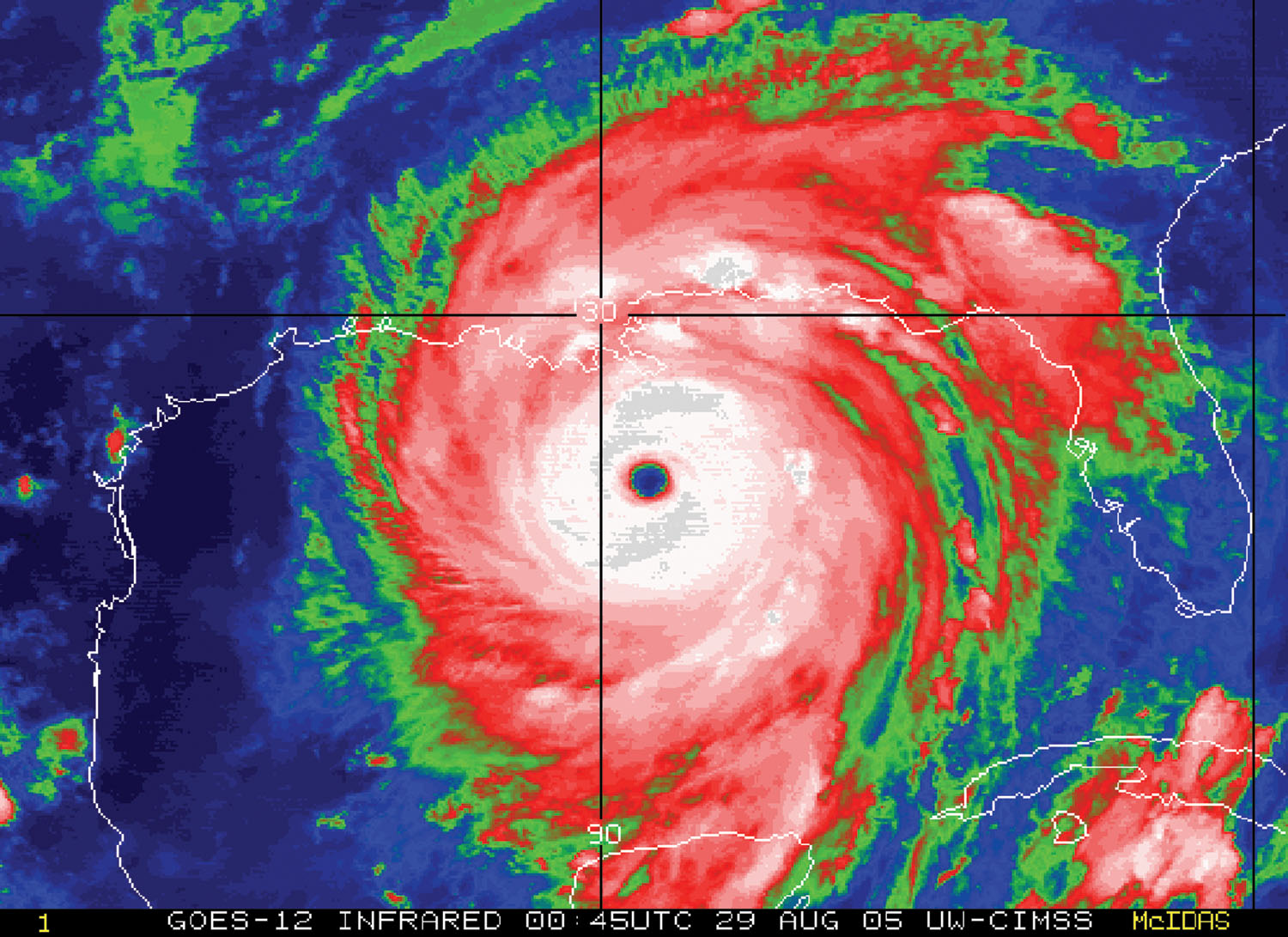
Shockers everywhere, at events long ago to happenings just the other day, always have something interesting to say. Take this sampling as a Shock Talk example:
“This will greatly enhance our ability to compete as we strive for excellence in preparing future entrepreneurs and business leaders for success in the global marketplace.”
John Beehler, dean of WSU’s W. Frank Barton School of Business, in reference to the Barton estate’s $8.5 million lead gift — the largest in WSU history — to the “We are Wichita State” fund-raising campaign.
“Here’s what it boils down to: We have to show the Student Government Association that people are interested in Mikrokosmos, that people still care about what we’re doing. They have to know that this is an organization worth being supported. Letters of support help, but financial contributions are the most important. It costs money to send copies of the magazine to students who are looking at the MFA program or any other program here. If Mikrokosmos is a well-developed, high-quality magazine, it shows that WSU supports its programs.”
Jason Harper, co-editor of WSU’s venerable literary magazine Mikrokosmos, on the need for moral and monetary support for the cash-strapped publication, whose editorial staff members can be contacted at mikrokosmos@wichita.edu.
“Twenty-five years at Wichita State! Mike is very dedicated to the sports broadcasting profession and is admired by his peers because of his commitment and preparation. He truly is prepared. If there’s an optimum word for him, that’s it — he prepares himself for everything he does.”
Ron Heller ’63, about the induction of Mike Kennedy ’71, “The Voice of the Shockers,” into the Kansas Association of Broadcasters’ Hall of Fame in October.
Jerry Cranford ’64 is a former WSU associate professor of communicative disorders and sciences whose research interests focus on mapping the human brain. Now a program director at Louisiana State University Health Sciences Center in New Orleans, Cranford and his wife Fran make their home in Metairie, La. They are two of scores of Shockers directly affected by the destructive power of Hurricane Katrina. Through her e-mail missive of Sept. 21, Fran allows us a glimpse into life after Katrina:
 “Jerry and I came back home on Sun., Sept. 18. Our house was okay — just minor roof and fence damage. We were very, very lucky. We evacuated with my daughter Sandy and her family to Memphis the day before the hurricane and stayed in a motel there until the following Thursday when they let us in La Place, where Sandy lives. We had no electricity or water the first night, and the telephones and cell phones weren’t working. The next day, on Friday, Sandy got electricity and water. We were not allowed back into our home until Sept. 18. A friend I grew up with stayed in her house because she wouldn’t leave her cats. She had water to her roof, and no one has heard from her. Her family thinks she and her cats drowned, but she has not been found yet. Two of my brothers had flood water about 2 to 3 ft. in their houses and lost many things. The spread of mold on their walls is unreal. They have to cut out all the sheetrock and insulation, replace cabinets, appliances, furniture and whatever else got water. Many of our friends and Jerry’s colleagues are without homes. The LSU Health Sciences Center where he works was flooded and damaged by the wind. The center is next to the Superdome. On Sept. 26, Jerry is supposed to go to Baton Rouge, at LSU, to teach some classes there. They cannot get back in their building in New Orleans until January or later. And now, we may need to evacuate again because of Rita — hopefully not. There is so much debris, piled 8-ft. high in front of so many homes. This will be flying everywhere if we get another storm. Will keep you informed, but if we get hit again, it may take more time.”
“Jerry and I came back home on Sun., Sept. 18. Our house was okay — just minor roof and fence damage. We were very, very lucky. We evacuated with my daughter Sandy and her family to Memphis the day before the hurricane and stayed in a motel there until the following Thursday when they let us in La Place, where Sandy lives. We had no electricity or water the first night, and the telephones and cell phones weren’t working. The next day, on Friday, Sandy got electricity and water. We were not allowed back into our home until Sept. 18. A friend I grew up with stayed in her house because she wouldn’t leave her cats. She had water to her roof, and no one has heard from her. Her family thinks she and her cats drowned, but she has not been found yet. Two of my brothers had flood water about 2 to 3 ft. in their houses and lost many things. The spread of mold on their walls is unreal. They have to cut out all the sheetrock and insulation, replace cabinets, appliances, furniture and whatever else got water. Many of our friends and Jerry’s colleagues are without homes. The LSU Health Sciences Center where he works was flooded and damaged by the wind. The center is next to the Superdome. On Sept. 26, Jerry is supposed to go to Baton Rouge, at LSU, to teach some classes there. They cannot get back in their building in New Orleans until January or later. And now, we may need to evacuate again because of Rita — hopefully not. There is so much debris, piled 8-ft. high in front of so many homes. This will be flying everywhere if we get another storm. Will keep you informed, but if we get hit again, it may take more time.”





